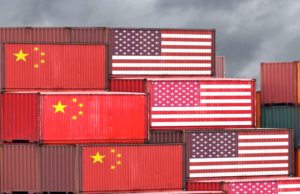Founder and CEO of Farvahar Partners, Omeed Malik, recently shared insights regarding the current market status, directly resulting from China’s devaluing of its’ own currency. Farvahar Partners is a boutique merchant bank that provides liquidity through private capital investment, allowing companies to garner growth, development, and long-term successes. Leveraging the pertinent experiences of Malik and company, Farvahar Partners also provides extensive capital raising efforts, business advisory, and merchant banking. Throughout his professional career, Malik has garnered impressive accolades within the financial sector, and has provided pertinent insights regarding the state of international markets.

After graduating with a Bachelor’s Degree in Philosophy and Political Science from Colgate University, Malik earned his Juris Doctor degree from Emory University’s School of Law. Graduating with honors, his first position post-matriculation led him to the world of politics, as a spokesperson for New Jersey’s former U.S. Representative Donald Payne. From there, Malik worked as a corporate lawyer for Weil, Gotshal & Manges, based in New York City. Working in both the private, and public sector, Malik amassed a great breadth of experience that led to his next assignment as Senior Vice President at MF Global. Before founding Farvahar Partners, Malik was the Managing Director and Global Head of the Hedge Fund Advisory Business at Bank of America Merrill Lynch. Omeed is also a member of the Council of Foreign Relations.
On August 5, 2019, Malik presented his insightful thoughts about the changing global results of China’s recent devaluation of its currency. With various experts surmising ways in which the Federal Reserve can limit the potential negative effects of this global change, Malik provided his esteemed point of view. Reading between the lines in regard to continued rising tensions between the United States, and China, Malik hinted at the potential of leaders “calling each other out” in regard to the impact of trade limitations on the global economy.
 According to Malik, “picking a fight” is most effective from a position of power, and he considers the United States’ currently strong economy. Attempting to unravel over twenty five years of complicated trade policy with China, President Trump shouldn’t expect to see huge deficits as a result of only a few days of instability in China, according to Malik. He goes on to discuss the traditional beneficiaries of the United States’ trade agreements with China, including large corporations, who are seemingly now feigning concern for the ways in which this unraveling could impact consumers. Malik reminded viewers of the notion that China’s devaluation isn’t necessarily a retaliation against President Trump and the United States, but rather, a sign of the country’s desperation. With vastly low Gross Domestic Product numbers, demographic issues, and other factors at play, Malik is confident these factors have accounted for the devaluation.
According to Malik, “picking a fight” is most effective from a position of power, and he considers the United States’ currently strong economy. Attempting to unravel over twenty five years of complicated trade policy with China, President Trump shouldn’t expect to see huge deficits as a result of only a few days of instability in China, according to Malik. He goes on to discuss the traditional beneficiaries of the United States’ trade agreements with China, including large corporations, who are seemingly now feigning concern for the ways in which this unraveling could impact consumers. Malik reminded viewers of the notion that China’s devaluation isn’t necessarily a retaliation against President Trump and the United States, but rather, a sign of the country’s desperation. With vastly low Gross Domestic Product numbers, demographic issues, and other factors at play, Malik is confident these factors have accounted for the devaluation.
Malik goes on to suggest that China’s leaders are hopeful that this move will incite instability throughout the United States, with a bi-partisan appeasement of China being the result of this incitement. To this thought, Malik reminds viewers that it takes time to create change, especially after 25 years of status quo ruling international relations. In a position of strength, Malik purports that the United States can survive this change, but China cannot do so.
Instead of reacting, Malik suggests allowing the negative effects of China’s devaluation of the Yuan force the country to make the needed changes to resolve these negative effects. Reporting that it is currently unnecessary for the Federal Reserve to step in at this time. With no significant inflation on consumer goods throughout the previous decade, Malik encourages individuals to not assume this turn of events will create such inflation. Rigged with inconsistencies, Malik encourages people to recognize the short-term nature of this devaluation, which will undoubtedly hurt China more than the United States.
Leveraging his previous experiences within various roles in the finance sector, Malik often provides insights related to global headlines in the field.
Up Next: The 30th Anniversary of Voyager 2’s Visit To Neptune



